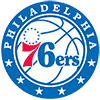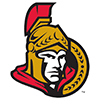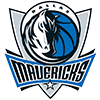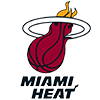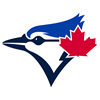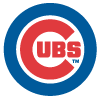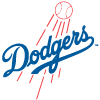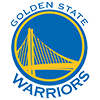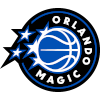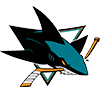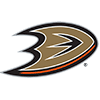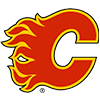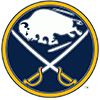Now that the NFL regular season is over, I have more time to write for baseball. I'll still be doing the NFL Value Meter throughout the playoffs, but the eliminating of more than half the players makes that process a lot easier.
I'm going to approach my column differently this season — writing shorter pieces, more frequently. Sometimes I'll try to do a deeper dive on a particular topic, but other times this will have a feel of a "news-and-notes" column. I don't write often enough, and all too often ideas end up on the cutting-room floor because it takes me too long to finish. I figure if it write shorter articles, more often, it will address both of those issues.
Here are a few topics that have caught my eye over the Hot Stove season in the last week.
Blank Ballots
It's Hall of Fame ballot season, where many writers reveal their respective ballots in their articles, via Twitter, or at least through Ryan Thibodaux (@NotMrTibbs on Twitter), who then tweets out their ballots. Every year I tell myself I'm not going to get worked up about a ballot I disagree with, and might even smugly tweet out that I'm not going to do so. And then every year I break that rule. I care about the MLB Hall of Fame — it's the only sport that I really care about the voting results, an odd Terrell Owens spurn aside from time to time. I know more about the
Now that the NFL regular season is over, I have more time to write for baseball. I'll still be doing the NFL Value Meter throughout the playoffs, but the eliminating of more than half the players makes that process a lot easier.
I'm going to approach my column differently this season — writing shorter pieces, more frequently. Sometimes I'll try to do a deeper dive on a particular topic, but other times this will have a feel of a "news-and-notes" column. I don't write often enough, and all too often ideas end up on the cutting-room floor because it takes me too long to finish. I figure if it write shorter articles, more often, it will address both of those issues.
Here are a few topics that have caught my eye over the Hot Stove season in the last week.
Blank Ballots
It's Hall of Fame ballot season, where many writers reveal their respective ballots in their articles, via Twitter, or at least through Ryan Thibodaux (@NotMrTibbs on Twitter), who then tweets out their ballots. Every year I tell myself I'm not going to get worked up about a ballot I disagree with, and might even smugly tweet out that I'm not going to do so. And then every year I break that rule. I care about the MLB Hall of Fame — it's the only sport that I really care about the voting results, an odd Terrell Owens spurn aside from time to time. I know more about the history of baseball than any other sport, and think I have a better grasp of the game's evaluative metrics than other sports. Until this weekend, I'd mostly stayed out of the scrum for this year's process. Lately the voters have eased the logjam of so many great candidates, so my propensity for outrage was lessened. Then I saw this tweet:
Ballot #114 is from first-time voter David Skretta. He submits a blank ballot. In his email, David wrote, "Those that I believe performed at a Hall of Fame level on the field did not reach that threshold in such areas as character and integrity."
Tracker: https://t.co/cVpo9dRM90 pic.twitter.com/e4NURsCtfU
— Ryan Thibodaux (@NotMrTibbs) January 2, 2021
It's not the first blank ballot I've seen, nor is it even the first of this voting cycle. I've always been annoyed by them. I tend to be a Big Hall guy, and that includes bringing in players known to have used P.E.D.'s. I get that there's a legitimate Character Clause argument against them, but I think you need to have a pretty ironclad case against the player to exclude them if they're otherwise worthy. Moreover, absent a positive test, confession or similar damning evidence, the burden of proof is on the voter using that a reason to vote a player out. But this particular ballot triggered me, maybe because it was David Skretta's first ballot:
Imagine waiting 10 years to have the honor of voting for the Baseball Hall of Fame, and then submitting a blank ballot with your first entry. I just ... can't.
— Jeff Erickson (@Jeff_Erickson) January 3, 2021
It takes awhile to get admitted into the BBWAA, and then once you're admitted, a writer has to wait 10 years to be eligible to vote for the Hall of Fame. It's an honor I'll never have, and I'm not campaigning to have a vote. But that privilege is seemingly abused by a handful to the detriment of the group as a whole. It's one thing to opt not to vote at all — when that happens, a player or group of players isn't actively hurt by the process. When a blank ballot is submitted, however, every single player on the ballot, character concerns or otherwise, has a much bigger mountain to climb. It strikes me as attention-seeking, pernicious and unnecessary to make the writer's point.
But the subsequent conversation I had with Jeff Fletcher and Derrick Goold made me realize there's a little more nuance to the issue. One of Jeff's points was that it is possible to evaluate this year's slate and deem all of the players on it to fall short (there are no slam-dunk choices like Mariano Rivera or Derek Jeter, for instance), and moreover each ballot that doesn't include a particular player has the same affect on that player as a blank ballot would. Derrick was more concerned that the blank ballot ends up being the equivalent of three other ballots where players were selected. I'm sympathetic to that point of view.
I'll add one other argument. It's incongruent to argue that the elite players on the ballot aren't worthy of admission because they used P.E.D.'s and thus the standards they set were illegitimate, and then look at the top "clean" (scare quotes here are used because in many cases we truly don't know how clean the players were, due to the lack of a testing regime, and also because players from previous eras were known to use amphetamines among other performance-enhancing substances without reprisal) players and say that they failed to achieve those same great heights.
Edwin Rios
I participate in a 24-team Scoresheet Mock Draft every offseason, with the draft beginning in December. It's a slow-draft that takes more than a month to complete, despite us selecting only 16 players. I just took Rios in the 10th round, with the 231st pick overall. Scoresheet isn't the best format for Rios — defense matters, and on-base matters more than it does in most Roto leagues. I hope to get him in many more leagues where his skills are better rewarded.
Rios is older than you might think, turning 27 in April, given his lack of a full-time job with the Dodgers so far in his career. That's about to change, unless the team re-signs Justin Turner to man the hot corner for another stint. All Rios has done at every professional level is hit. Yet the Dodgers have been so log jammed at the big-league level that Rios had to spend at least parts of three seasons at Triple-A Oklahoma City before getting his chance with the Dodgers as a part-time player in 2019.
Rios hit .250/.301/.645 in 2020 with eight homers. What will he do with extended at-bats? Was his breakout for real, or a small sample fluke? One positive indicator was that he drastically cut down on his strikeouts, dropping from 37.5% in 2019 to 21.7% in 2020. I'm not sure 83 plate appearances is enough to be sustainable, however. Some of the Statcast indicators are positive for Rios too — with enough plate appearances, Rios would rank 36th overall in average exit velocity at 91.5 mph, behind Nelson Cruz and ahead of DJ LeMahieu. Working against him is a lack of speed (he has zero SB attempts in the majors, and his Speed Score on Baseball Savant puts him in the 34th percentile) and, so far in a limited sample, a negative home/road split.
I've baked in a little bit of regression into his projection, all while giving him considerably more playing time, giving Rios a .266/.322/.533 line with 23 homers and 75 RBI. That puts him at 221 in our custom rankings, close to Clay Link's ranking of 202 on his overall cheat sheet. With an NFBC ADP of 327, we're suggesting he'll bring quite a profit on draft day if his prize remains stable.
Projections Added
I'm continuing to add players to our 2021 projections set, and will be doing so frequently over the next month. Here's who I've added approximately in the last 24 hours, with a brief comment on each. Many of these are depth players, but some will definitely be drafted in most leagues.
Corey Knebel, RP, LAD - Knebel was traded to the Dodgers in December after the Brewers announced their intention to non-tender him. Knebel returned from Tommy John surgery after missing all of 2019. He struggled with his velocity in the sprint season, and the results showed. Perhaps the passage of time allows him to regain some velocity.
Joe Kelly, RP, LAD - Pedro Baez and Blake Treinen are free agents, so Kelly and Knebel are atop the Dodgers' depth chart for now as the next options to close should something happen to Kenley Jansen. Kelly's walk-rate makes him a shaky candidate to step into that closer role.
Victor Gonzalez, RP, LAD - Gonzalez is a dark horse candidate to be the closer-in-waiting, though that's not much of a surprise to anyone that paid attention to his usage in the playoffs. Gonzalez is a converted starter that had a phenomenal run out of the bullpen. Guys like him can burn bright and fade quickly, but Gonzalez at least demonstrated skills and guile enough to handle the job in high-leverage situations.
Domingo German, SP, NYY - German was reinstated from Major League Baseball's restricted list in October after missing the 2020 season. Do the Yankees plan to use him in the rotation in 2021? How effective will he be after his 2019 breakout? His NFBC draft range, with an early pick of 237 and a late pick of 474, illustrates his volatility.
Adam Ottavino, RP, NYY - On Sept. 7, Ottavino gave up six runs on four hits and two walks to the Blue Jays without retiring a batter. In the ensuing six games he allowed just one run over 5.2 innings, with a 10:1 K:BB. The Yankees lost confidence in him nonetheless, allowing him to pitch just once in the playoffs.
Jonathan Loaisiga, RP, NYY - Loaisiga seems to be a perpetual swing man for the Yankees. They are highly likely to sign a starter or two this offseason, as Luis Severino won't be ready for the start of the season, and it's up for debate whether Deivi Garcia, Clarke Schmidt or Domingo German will be ready for prime time. Loaisiga could get a handful of starts in the spring to make his case.
Tyler Wade, 2B/SS, NYY - Meanwhile, LeMahieu remains a free agent and it's not a done deal that he returns to the Yankees. The Yankees could end up giving Wade more playing time than they'd desire.
Mike Ford, 1B, NYY - Remember when you shied away from Luke Voit because Mike Ford was a threat to steal at-bats on the better side of a platoon? No, that was just me? OK.
A.J. Puk, SP, OAK - I was discussing Puk's projection with podcast-mate and resident A's fan Scott Jenstad, and I told him that the projection was "... woefully modest, but I have zero clue how healthy he'll be, let alone how well he'll pitch...." Scott's reaction was to say "... any projection that isn't woefully modest is kinda nuts, honestly..." So there you have it — I really don't know what to expect out of Puk, except that he's a good bet to be in the rotation, and a good bet to have some sort of innings limit.
J.B. Wendelken, RP, OAK - The A's are turning over a lot of their bullpen. I think Jake Diekman has the best chance to close with the departure of Liam Hendriks, at least among the A's in-house options. But don't sleep on Wendelken, who had a good season and is right-handed. Lefties always have to work against a bias because of the managerial desire to mix-and-match in late inning situations, unless that said team has multiple lefties.
Lou Trivino, RP, OAK - Trivino bounced back to provide a facsimile of his 2018 rookie campaign, matching that season's 2.6 K/BB while posting a 1.11 WHIP, albeit in a lower-leveraged role. He's a good candidate to pick up his old set-up role and earn double-digit holds again, after getting shut out in that category in 2020.
Jonah Heim, C, OAK - Heim enjoyed playing Vegas (hey, who doesn't), but aside from that his career statistical profile suggests he's a run-of-the-mill backup catcher.
Tony Kemp, 2B, OAK - Much like Tyler Wade with the Yankees, Kemp sits atop the A's depth chart at second base, splitting time there with Chad Pinder. The A's are losing Marcus Semien to free agency and aren't currently rumored to land an established starter at second base ahead of the duo. And yet, I don't think Kemp will hit enough to maintain a starting job, so while he has cheap stolen base potential, I prefer not drafting him (or projecting him) as a starter.
My next batch of projections will include a lot of prospects who didn't play at all in 2020 and might not begin the 2021 season in the majors as a result. Projections for prospects are already notoriously unreliable, and they don't capture the range of outcomes very well. So much can change from year-to-year that teams will be able to see but we won't see tangible results as easily. Nonetheless, these prospects will get drafted in our leagues, so we need to get a projection in for them. Look for that later in the week.







